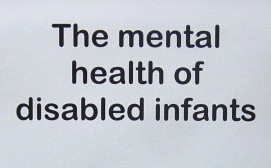Pupils with special needs and teachers in mainstream schools are often the victims of a “one size fits all” approach to schooling and education, a leading academic has claimed.
Pupils with special needs and teachers in mainstream schools are often the victims of a "one size fits all" approach to schooling and education, a leading academic has claimed.Professor Paul Cooper, a chartered psychologist and professor of education at the University of Leicester, said pupils with social, emotional and behavioural problems (SEBD) are at particular risk of under-achieving because schools are frequently ill-equipped to handle their problems.
Teachers need better training in the appropriate skills and methods for supporting pupils with special needs, while the children themselves require a more diverse range of provision to meet those needs both within and beyond mainstream schools.
In a new book, From Inclusion to Engagement: helping students engage with schooling through policy and practice, Professor Cooper and co-author Barbara Jacobs, a research student in the University of Leicester's School of Education, argue that it is not children with special needs that present the problems for schools and teachers -- but failings within the education system.
Professor Cooper, whose book also examines classroom strategies and approaches that have been found to be effective, said that too often "blanket assumptions" are made about pupils' needs, and teachers frequently lack the skills and knowledge to be able to support them.
He said: "There should be a diverse range of educational facilities so that children can move between one or another as needs arise. Everyone should have the right to go to their local school, but they also have a right to be educated in accordance with their needs and aspirations.
"It is patently obvious that many of our schools experience difficulties in catering for the needs of all students, and demanding that they do so in the absence of appropriate training and resources is disheartening for teachers and disastrous for students -- especially those who are most vulnerable.
Teachers are as much victims of this muddled approach as children, Professor Cooper argues. "Initial teacher training has not changed sufficiently to accommodate the inclusion policy, leaving most teachers lacking in the skills required to deal with children with serious difficulties.
"This failure means that the most vulnerable pupils often do not tend to achieve educational success. There is also a knock on effect from this, whereby teachers facing the most challenging circumstances find themselves locked into a fire fighting role, which has a negative effect on the learning experience of all students."
The situation is not helped by some academics who get bogged down in ideological discourse rather than conducting useful research, Professor Cooper adds.
"Too much time is spent by some educationalists navel-gazing and fiddling around with concepts that fail to tackle the nuts and bolts of interaction in the classroom," he said. It's no wonder that policy makers and teachers pay little attention to what academics have to say, given the misguided nature of the discourse which too often vilifies specialist knowledge and skills and equates inclusion with where children are located rather than the quality of their educational engagement."
* From Inclusion to Engagement: helping students engage with schooling through policy and practice, is published by Wiley Blackwell, Price £27 in paperback or £57 in hardback.
For more information, please contact Professor Cooper on 0116 252 3751; This email address is being protected from spambots. You need JavaScript enabled to view it.


 London, UK. Wednesday 9th November, 2011.
London, UK. Wednesday 9th November, 2011. 